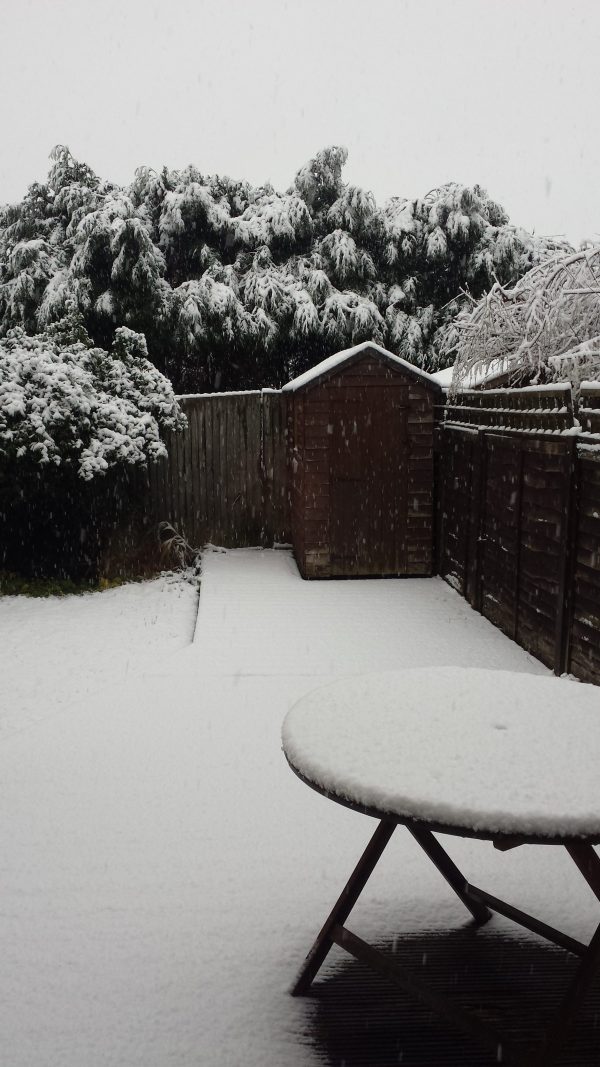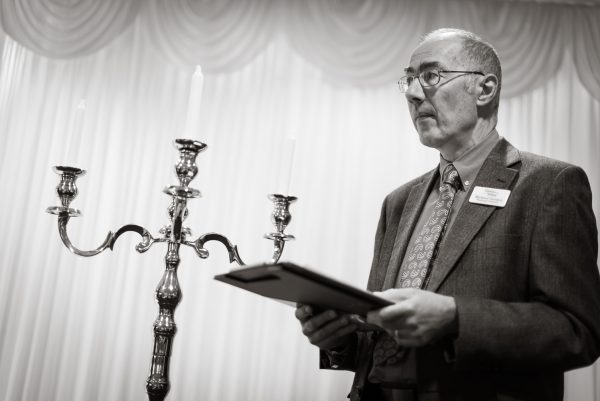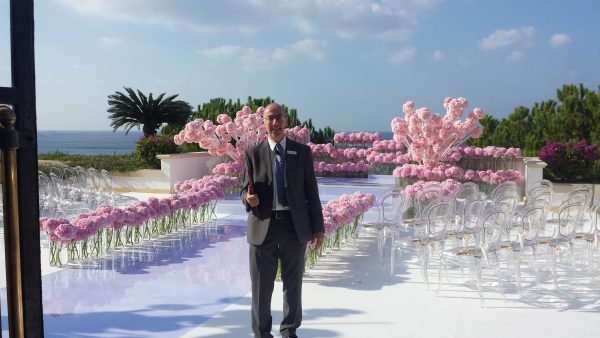by Michael | Dec 19, 2017 | Blog
It’s my last blog post before Christmas (yipee!). I therefore want to take the opportunity to wish all my readers happy holidays. (I apologise for the American terminology, but it covers a lot of ground, as Chanukah is still going (just), whilst Christmas is a week away.)
So I hope you have a restful time, and that you enjoy family time (if that’s on the agenda). At the very least, I hope you find some television that you’ll love and consume a festive feast without too much of a hangover to follow!
On a personal level, this looks set to be the quietest Christmas we have ever known, as family politics means that we will be celebrating on our own this year. We’ll eat and drink well, and I’m sure we’ll find some entertainment (Scrabble or Yahtzee, perhaps?). I’m not too worried, although I usually get thrashed at Scrabble!
As I have no celebrations booked before January and I don’t expect many funerals to happen in Christmas week, I am forced to take some time off, and that’s not entirely unwelcome.
I can do a little planning for my business, of course, and I have some (paid) writing to finish, which will probably take me till the end of December, so I don’t risk getting bored. I even think I may get dragged out for some shopping in the next few days, although I can’t say I relish that…
I wonder if you’ve got rather more ambitious plans than me? It wouldn’t be very hard! But whatever you end up doing, I hope it’s a joyous time for you.
I certainly hope and pray that we all enjoy a happier year. There have been some horrible atrocities in 2017 in the UK and elsewhere. Let’s hope that a little tolerance and understanding spreads across our globe next year. Maybe we can all play a part in achieving that.
Anyway, whatever your religion (if you have one at all), may I simply wish you “happy holidays”.

by Michael | Dec 12, 2017 | Blog
With the snow coming down unseasonably hard in Harrow as I write, my thoughts turn to wedding weather. Not unreasonably, I suppose.
The weather can make such a difference …
So what arrangements can you make, if inclement weather looks like ruining your big day?
Clearly, it will make a difference whether your ceremony will be held outdoors, or not. The amount of warning you may have about dodgy weather may also play a part. If it’s a freak storm, you may be taken completely by surprise.
One wedding I took was meant to have begun at 5.30 (when it was very sunny and warm). Unfortunately, it couldn’t actually begin till 7.00 p.m., and the rain bucketed down. Nobody could have foreseen that.
All we could do was to borrow a parasol, so that at least the couple were protected!
Eventualities
If you’re using the garden of a private venue, say, there may be the possibility of going inside. The owners will appreciate maximum warning, of course, and there may be problems of space etc. Your guests will accept a little discomfort in the circumstances!
Should you (or, rather, the venue) be providing chairs, it may be possible to get the venue staff to dry them off just before everyone arrives (although that doesn’t solve the problem of continuous rain!).
If there isn’t that option, you simply have to grin and bear it. It will help a little bit, if your celebrant can add a bit of humour to the proceedings, but it may not be as fun as you would hope. However, with sufficient warning, you may be able to prepare umbrellas for your guests (and for the couple!). And once you’re wet, you’re wet …!
Maybe you know that it’s likely to be really muddy. Then you might want to warn people by e-mail (or even do so in the original invitation, especially if it’s a winter wedding). High heels may not be a great idea. A venue might be able to lay down some matting, or whatever, for the ceremony area.
If it’s freezing, unless you can lay on some hot water bottles, you will have to rely on people being sensible enough to come prepared.
For an outdoor winter wedding, it makes sense that, when you prepare the service with your celebrant, you aim at a reasonably brief ceremony. Another factor is that wind may make it very hard to hear what is going on. I did a Vow Renewal at Stonehenge last year. It was wonderful, but I was glad that it was a only a small ceremony, as the incessant wind presented real challenges to my vocal cords!
Good weather!
I ought to mention fine weather weddings (even in this country!). Especially if it’s a hot spell, organise shade, if you can – and water – for guests at outdoor weddings. Parasols may be a possibility.
Attitudes
Every wedding has its professional moaners, however beautiful and faultless it may be. Accept it! But realise that the vast majority of people will NOT blame you for the rain, snow, wind or sun, and will actually take Acts of God in their stride. Do what you can to mitigate stormy weather, and enjoy what you can.
At the very least, it may be a day that you and your guests never forget!

by Michael | Dec 5, 2017 | Blog
Planning to write your own wedding vows? You might be OK with the prospect, but most people doubt they can do it. Worse still, how about delivering the finished product?
It’s very challenging to compose something that will be read publicly. Even more so, if it’s you who will be delivering it.
Cheer up! There are tips you can follow that will help you.
One simple option is to hire a professional to do it for you. Peace of mind in an instant!
The “how”
A civil celebrant is used to public speaking. He conducts weddings, funerals, vow renewals and other ceremonies on a regular basis. Sometimes, the guests number fewer than 10; often, there are more than 100 of them. A good civil celebrant will deliver the texts clearly, beautifully and movingly.
In order to put together the text, the civil celebrant will work with the relevant person(s), normally starting with a home visit. Asking questions and listening intently, the celebrant will draw up a picture of the person being honoured. Once he has sufficient information, he will go away and create a special ceremony.
This will be e-mailed to the client, who can request changes (normally, up till 24 hours before the ceremony). Once the order of service is settled, the client will have seen the final version, and approved every word.
Vows
If vows are to be written, it is lovely if they reflect the couple’s personalities and beliefs. The best people to do that are the couple themselves, of course! However, a celebrant can suggest ideas, offer guidance, so the couple can write something unique. If needs be, he can even do the job for the couple.
Vows can be traditional or modern. They want to be sincere and achievable. They can be solemn, but also funny. Moreover, don’t think that they have to go on too long! Half a minute each may well be all it takes.
Presentation
There are various choices available to you, when delivering your vows.
You can memorise what you want to say. If you’re an experienced public speaker, you might choose this option. Otherwise, I don’t recommend it. You will have nerves to contend with, and, indeed, you may not project your words loudly and clearly. If you are not heard, that would be a huge shame.
Secondly, you can read your words. In that case, in order not to lose the sincerity of the moment, use a 3 x 5 card with bullet points. Try not to read from it too much, though, so your eyes can meet your beloved’s! (That means plenty of practice beforehand, so you know what you’re wanting to say!) There’s also the question of keeping and holding the card, which may be an issue, particularly for the bride!
Thirdly, the celebrant can read your vows, ending by asking if you agree, and all you have to do is to say “yes” or “I do” (hopefully!).
Finally, the celebrant can read phrases out which you each repeat. That way, the guests can hear the vows, even if you’re mumbling them. Moreover, you and your beloved can say the words to each other with eye contact, and that is surely the way to go.
For examples of vows, or help and advice, feel free to ask me. I can be found at 07931 538487 or at celebrant@vowsthatwow.co.uk
by Michael | Nov 28, 2017 | Blog
I know: how long is a piece of string?! Everybody’s take on humour at a wedding ceremony is likely to be unique, so there’s never going to be a “one answer fits all” response. A wedding ceremony means such a lot – but there’s no compulsion for yours to be standardised, if you don’t want that.
Church
Of course, if you choose a full religious service, then you’ll have no options as far as content is concerned. There’s unlikely to be much humour. You know what you’re getting, and that suits plenty of people, so all well and good.
Register Office
Of course, you have the choice to have a secular ceremony instead. In each district the Registrars conduct their own service (although the core will be identical). So you will be at the mercy of geography when it comes to the atmosphere conjured up. Basically, you can expect about a 10-minute ceremony, plus time for signing the certificate. It may reek a bit of conveyor-belt. Maybe you’ll chance on a registrar with a sense of humour, but maybe you won’t!
Humour
What I’ve written so far seems to be suggesting that wedding ceremonies have to be serious after all. But, remember, there is a third way.
You can opt for another type of ceremony: a civil ceremony. Your civil celebrant builds a service that will be personalised to you, so the tone (as well as content) will normally be made to suit you precisely.
But how light-hearted do you want such an important ceremony to be? Of course, that depends entirely on you. However, there’s a good chance that you’ll include some serious elements. For example, I might give an address on the meaning of marriage; there could be a serious final blessing; exchanging the rings may be accompanied by fairly serious words; so might the vows.
Equally there is the potential for humour, and even laughter.
You may want to tell your story (how you met etc.), and that usually involves a funny anecdote or two. If you write your own vows, you can include humour, although most of it will probably be serious. The readings or poems can be amusing. I do enjoy this one by Pam Ayres:
Yes, I’ll marry you, my dear,
And here’s the reason why:
So I can push you out of bed
When the baby starts to cry.
And if we hear a knocking
And it’s creepy and it’s late,
I hand you the torch, you see,
And you investigate.
Yes, I’ll marry you, my dear,
You may not apprehend it,
But when the tumble-drier goes,
It’s you that has to mend it.
You have to face the neighbour
Should our Labrador, Jackson, attack him,
And if somebody makes me sad,
It’s you that has to whack him.
Yes, I’ll marry you.
You’re virile and you’re lean,
Our house is like a pigsty
You’re amazing – you keep it clean.
That sexy little dinner
Which you served by candlelight,
As I cook canned soup,
You can cook every night!
It’s you who has to work the drill
And put up curtain track,
And when I’m feeling moody,
It’s you who gets the flak.
I do see great advantages,
But none of them for you,
And so, before you see the light,
I do, I do, I do!
If you’re of a surreal inclination, you may even include readings that have nothing to do with marriage, but that you simply love. Neil Gaiman’s “The Day the Saucers Came” is a lovely example!
That Day, the saucers landed. Hundreds of them, golden,
Silent, coming down from the sky like great snowflakes,
And the people of Earth stood and
stared as they descended,
Waiting, dry-mouthed, to find out what waited inside for us
And none of us knowing if we would be here tomorrow
But you didn’t notice because
That day, the day the saucers came, by some some coincidence,
Was the day that the graves gave up their dead
And the zombies pushed up through soft earth
or erupted, shambling and dull-eyed, unstoppable,
Came towards us, the living, and we screamed and ran,
But you did not notice this because
On the saucer day, which was zombie day, it was
Ragnarok also, and the television screens showed us
A ship built of dead-men’s nails, a serpent, a wolf,
All bigger than the mind could hold,
and the cameraman could
Not get far enough away, and then the Gods came out
But you did not see them coming because
On the saucer-zombie-battling-gods
day the floodgates broke
And each of us was engulfed by genies and sprites
Offering us wishes and wonders and eternities
And charm and cleverness and true
brave hearts and pots of gold
While giants feefofummed across
the land and killer bees,
But you had no idea of any of this because
That day, the saucer day, the zombie day
The Ragnarok and fairies day,
the day the great winds came
And snows and the cities turned to crystal, the day
All plants died, plastics dissolved, the day the
Computers turned, the screens telling
us we would obey, the day
Angels, drunk and muddled, stumbled from the bars,
And all the bells of London were sounded, the day
Animals spoke to us in Assyrian, the Yeti day,
The fluttering capes and arrival of
the Time Machine day,
You didn’t notice any of this because
you were sitting in your room, not doing anything
not even reading, not really, just
looking at your telephone,
wondering if I was going to call.
So if you want a bit of humour at the altar, there are quite a lot of possibilities. In order to explore this further, please give Michael a call (07931 538487) or send ane-mail (celebrant@vowsthatwow.co.uk).
by Michael | Nov 21, 2017 | Blog
Oh, no! The groom turns up without a ring. The hotel is making a barbecue, but the kitchen goes up in flames. The bride is late – very late – for the wedding and can’t be traced.
These are all things that have happened in my experience as a civil wedding celebrant, and I have come to know that I must “always expect the unexpected”.
Resolving the issues
Perhaps you’d care to know the outcome of those situations?
The groom had left the ring in his hotel room. Fortunately, the hotel was a short drive away, and he had arrived early. He managed to retrieve the ring and return before his bride (who was fashionably late) arrived. Not the best of starts to a wedding, though.
The fire meant that we were unable to use the interior of the House until the Fire Brigade had cleared it. They came quite quickly, but, as it was a Grade One listed building, the checks took for ever. I was about to suggest an outdoor ceremony (despite the large number of guests and lack of public address system outside), but we got the ‘go–ahead’ just in time.
The bride was known for her punctuality, but was half an hour late on a very hot day. After about twenty minutes, the Best Man had tried to contact her, but there was no reception (wouldn’t you just know it!). The groom became progressively more agitated – all the more so, when some tactful soul suggested that his bride might be standing him up at the proverbial altar. (Yes, someone really said that!)
Fortunately, not long afterwards, the bride did arrive (the driver had got lost!).
Who’d have expected it?
According to my understanding, I am a civil celebrant, charged with creating ceremonies and conducting them. But I’ve currently been asked to do some rather different jobs, which I hadn’t foreseen.
Firstly, I have been asked to write a Vow Renewal ceremony. Nothing odd about that, you say. But it’ll take place in Australia. Unfortunately, the couple are not thinking of paying for me to go out there (so stingy!!), so I won’t actually be conducting it.
Secondly, I was asked to do some business work, proof-checking profile texts for LinkedIn and the like, and rewriting where necessary.
Thirdly, I have been invited to interview a 90-year-old, then transcribe and edit his reminiscences. Absolutely fascinating (especially the war years), although the transcribing is not quite as exciting.
Finally, I have been asked to start work for a client. Nothing strange about that, you’ll agree. But what is odd is that I don’t recognise the name of the person, and I have no information about where and when the ceremony will be held (and what type of ceremony)! (Not ideal.)
I presume that the potential client spoke to me quite a time ago, and has now decided to go with me. Having nothing more than a name (which rings no bells for me) and an address, to which I have sent an explanatory letter, I am awaiting developments.
Unpredictable it may be, but I’m not complaining. All this flirting with the unexpected makes my job even more wonderful!

by Michael | Nov 14, 2017 | Blog
A destination wedding sounds such a wonderful idea – and it is!

It’s an exciting prospect. Sun, blue skies, the sea, the works … Why wouldn’t you go weak at the knees at such a dream?
However, it is easy to forget that there are a few practicalities to take into account.
I don’t claim to be a travel agent. They are the experts in this field. However, I can start you off with a few givens that you will need to consider: flights, access to the wedding venue, guests, accommodation, catering, and so on. Not to mention budget or destination preferences. But I defer to the experts here.
The Ceremony
Where I am much more experienced, as a professional Civil Celebrant, is the ceremony itself. If you’re going to travel miles to marry in an idyllic or significant spot for you, you’re not going to want the ceremony to be an anti-climax or disappointment.
There are various options open to you:
- There may well be a celebrant on the spot that you can use. The hotel can often supply one. How good they will be is open to question. You won’t have met them before, so they’ll conduct the ceremony of their choice (standard for everyone, with just the names changed) and there may be no rapport between you. There may be language difficulties too. Of course, they may be professional enough, but using one can constitute quite a gamble.
- You can take a celebrant from the UK along with you. When you’re buying the flights for your family and friends, you add the celebrant’s fare, and pay for a night’s accommodation (or two, if the return flight isn’t convenient), transfers and meals. The advantage of this is that you will have worked with them in the UK and prepared exactly the service you want, which they will conduct for you. They are professionals. You can relax.
- One of the bridal party may be able to conduct the ceremony for you. You’ll save money that way, but will this officiant do a good job? Most people are not naturals at presenting. They are unlikely to be able to reach the standard of a professional civil celebrant. They may want to help you out, but they may be much happier enjoying the ceremony as a bystander, rather than having to endure stress.
Home alone?
Whichever of the above options you prefer, what about the friends and family you cannot take with you, but who would love to celebrate with you and share your happiness? Have you thought of having a wedding blessing (call it what you will) when you return to the UK? You can book the venue of your choice, the bride can still wear white, you can have bridesmaids, a best man and a procession, the tone will be as formal as you want, you may include ritual (religious or not), you can hold a certificate-signing photo-opportunity – in short, the whole ceremony can, to all intents and purposes, be a full wedding.
So consider what is important to you. Some will be happy to be married by an Elvis lookalike in Las Vegas; others will want something more serious. It’s all good, as long as you get what you want.
But if you’re looking for a memorable, meaningful ceremony – whether at your destination or in the UK afterwards – think about using a civil celebrant . With their advice and guidance, you can enjoy that unique ceremony that reflects your personalities and beliefs, and which will be everything that you want it to be.
Do contact Michael (+44 (0)7931 538487) to discuss this further.




